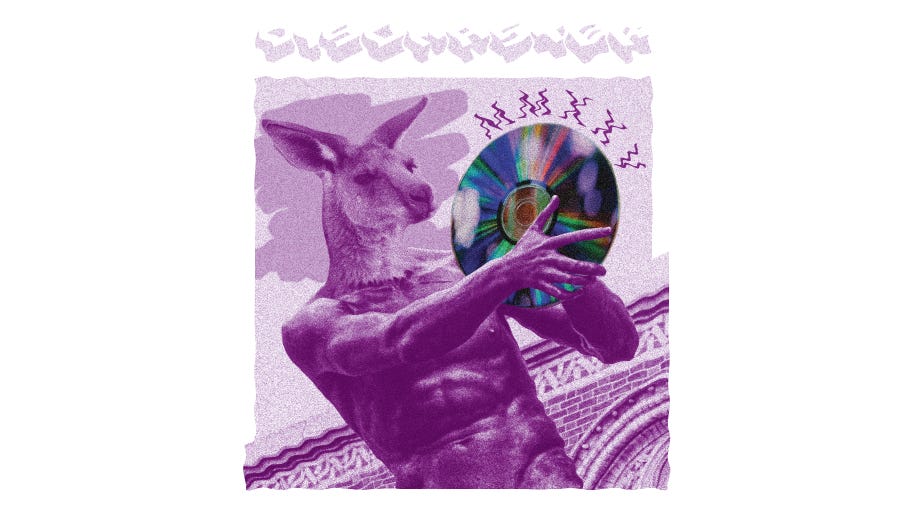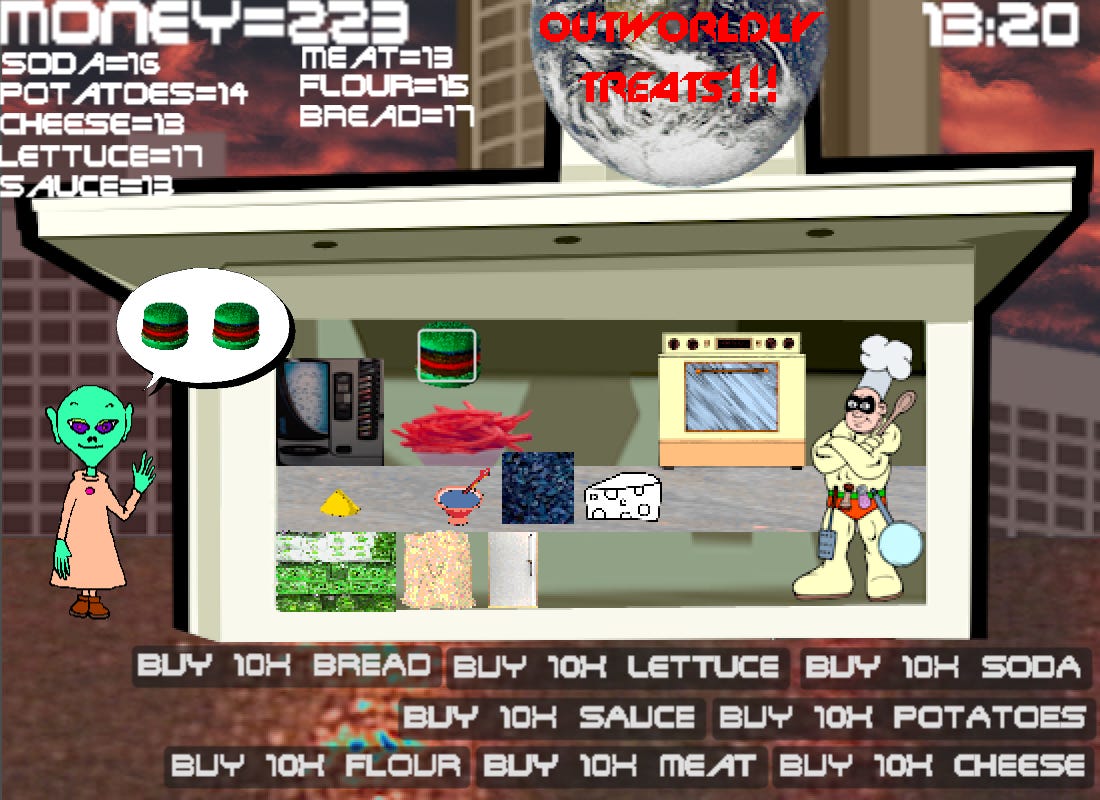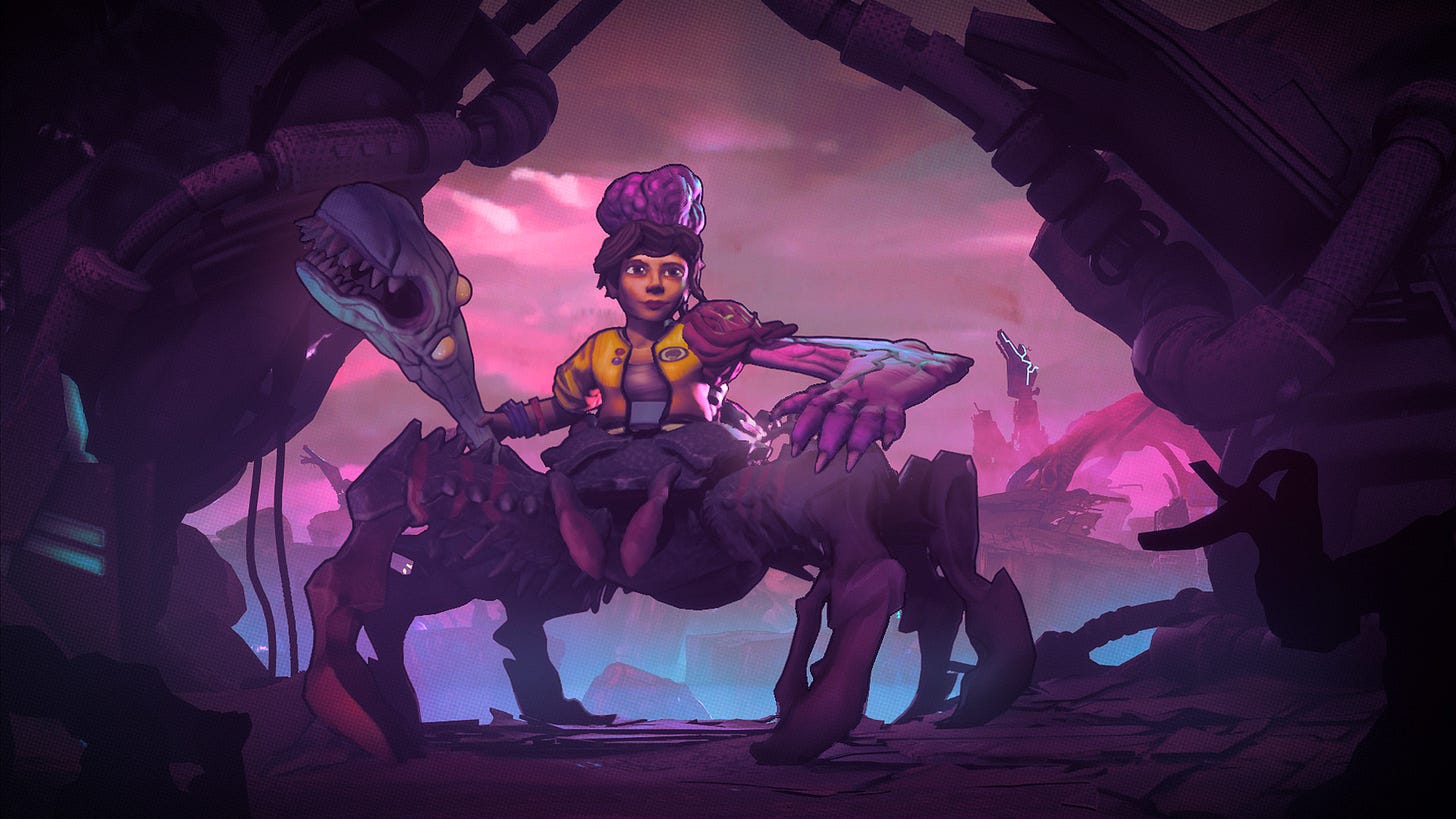Could yesterday's internet help build tomorrow's gamedev community?
How the inaugural DiscMaster Jam happened
My guest for this issue of Multiplier is Jarrod Farquhar-Nicol. He’s a creative director and game designer at the Canberra-based Anecdote Games, with over 16 years in game development. These days, you can find and follow him on social media over on Bluesky.
Fergus: When it comes to game jams, I can’t help but think of them as a future-facing endeavor.
The chance to pick up skills, try new things and experiment with prototypes that might one day evolve into tomorrow’s next big thing. History is littered with projects that started life at a jam but went on to become more commercial, from The Binding of Isaac to Inscryption to Superhot.
By design, The DiscMaster Jam looked backwards in time and gave participants the excuse to mine the past for inspiration instead. Taking place back in April 2025, the week-long game making marathon produced over 60 games that relied on or otherwise incorporated assets preserved by The Internet Archive. At a glance, it’s probably one of the weirdest and novel setups for a game jam that I’ve heard of since Train Jam.
Naturally, I can’t help but wonder how it came together? Where did the inspiration and desire to dig into DiscMaster come from?
Jarrod: The idea for the DiscMaster Jam came about in 2024 when I travelled to GDC in San Francisco and attended a game dev meetup at the Internet Archive. There, I met Evan Sirchuk, who was running the event. I was instantly intrigued by a large monitor in the room showing an older-looking website. Evan told me this was DiscMaster, a bespoke search engine that lets users trawl over 900 million vintage computer files from archive.org.
I’d just been to the beautiful Muir Woods, so we searched “redwood”. Old images, maps, sound files, 3D models and textures popped up. We did some different searches, and I learned that along with photos and videos, there were even full games and their source code, as well as tons of models, sprites and other assets suitable for use in games. There’s some wild and wonderful stuff there. Browsing the site was a fascinating trip through time. I was captivated!
Having played and loved games all my life, this treasure trove tapped into nostalgia from my formative years. Now that I knew so many cool, weird assets were readily available, I had a strong urge to share them with others and see new life breathed into them. For this jam, I wanted to pull these forgotten files through time into the present. What would games be like if they were made in 2025 using only these assets? I hoped this creative constraint would spark jammers’ creativity as much as it had already inspired me.
On the spot, I suggested the idea of collaborating to make this game jam a reality. Evan shared my enthusiasm and agreed the concept was a great fit to promote the importance of media and game preservation. The Internet Archive could even offer prize money and help find judges. Over the coming months we kept chatting, planning and eventually launched the DiscMaster Jam.

Fergus: That’s such a cool little origin story that fully lives up to my expectations for an event with such a specific and quirky tilt to it. Naturally, I have to wonder how that creative constraint played out in practice. Were there specific corners of the DiscMaster library that proved to be more popular than others?
As one of the organisers behind the event, I also have to imagine you noticed more than a few trends in design or common threads among those who participated. Did more people approach things by starting with assets they liked and building a game around that or the opposite?
Something else that this event brings to mind is the never-ending online discourse around the way that “lazy” game developers might re-use assets from one project to another. It seems intuitive to me that events like DiscMaster Jam challenge that narrative. However, I’d be curious to hear your thoughts on whether such a public-facing opportunity to untangle the idea that digital recycling is bad form might be able to change the conversation around this topic.

Jarrod: The Internet Archive is so vast that we made asset starter packs. Jammers could use just the quirky mix of assets we’d found, delve deep to find their own, or any combination of the two. We required all projects to use at least 50% DiscMaster assets, and we set a challenge for them to use 100% DiscMaster assets only. Way more people took up that challenge than we expected! Many creators also tackled our optional theme of “media preservation”. That took many forms: literally fighting back against corporations censoring and banning media, trading within communities for the betterment of all and to reclaim ownership of community centres, traversing and engaging with libraries and archives, concepts addressing AI, recovering files, and vibing with chill music while fishing in literal seas of data (I was pleased to see two games take this angle). Vaporwave aesthetics were also pleasingly frequent across the jam.
Regarding asset recycling, we didn’t make this jam to specifically counter that discourse. However, when your assets already exist and constrain what you can make, it naturally shines a light on other aspects of creativity. Design, narrative and music were big standouts in this jam. It also let folks who weren’t art-savvy participate. Artists still shone, too, with their focus shifting to remixing existing assets and combining them in interesting ways. I think the results speak for themselves.
One entry, made in Australia, featured the player climbing a gorgeous Tower of Babel and fending off biblically accurate angels whose health was represented with words of verse. All of this without making any new art assets. There are over 60 more games in the world thanks to the participants of this jam. Games that use existing assets, but games that would not have existed without the creative effort of these developers crafting new experiences in 2025. I think that's worth celebrating.
When participants asked if generative AI was allowed in the DiscMaster Jam, we said no and I elaborated:
“We want to showcase human creativity in this jam. And learning how things work. That’s what we are encouraging here… getting as ‘handcrafted’ as possible.”
One participant, going by AF2050, replied “I see. It reflects my stance so I've decided to try my best all alone”.
I think there’s something beautiful about that. We’re all just trying our best. And yet, we aren’t alone. We have each other. Other humans.
The community that gathered around the DiscMaster Jam was so supportive, collaborative and creative. Even with monetary prizes on the line, people shared resources, game ideas and cool assets they found. Music wasn’t eligible for prizes this time, but a vaporwave band made an entire album anyway and contributed tracks to other game entries! This community spirit is one of the things I love most about working with indie game devs.



